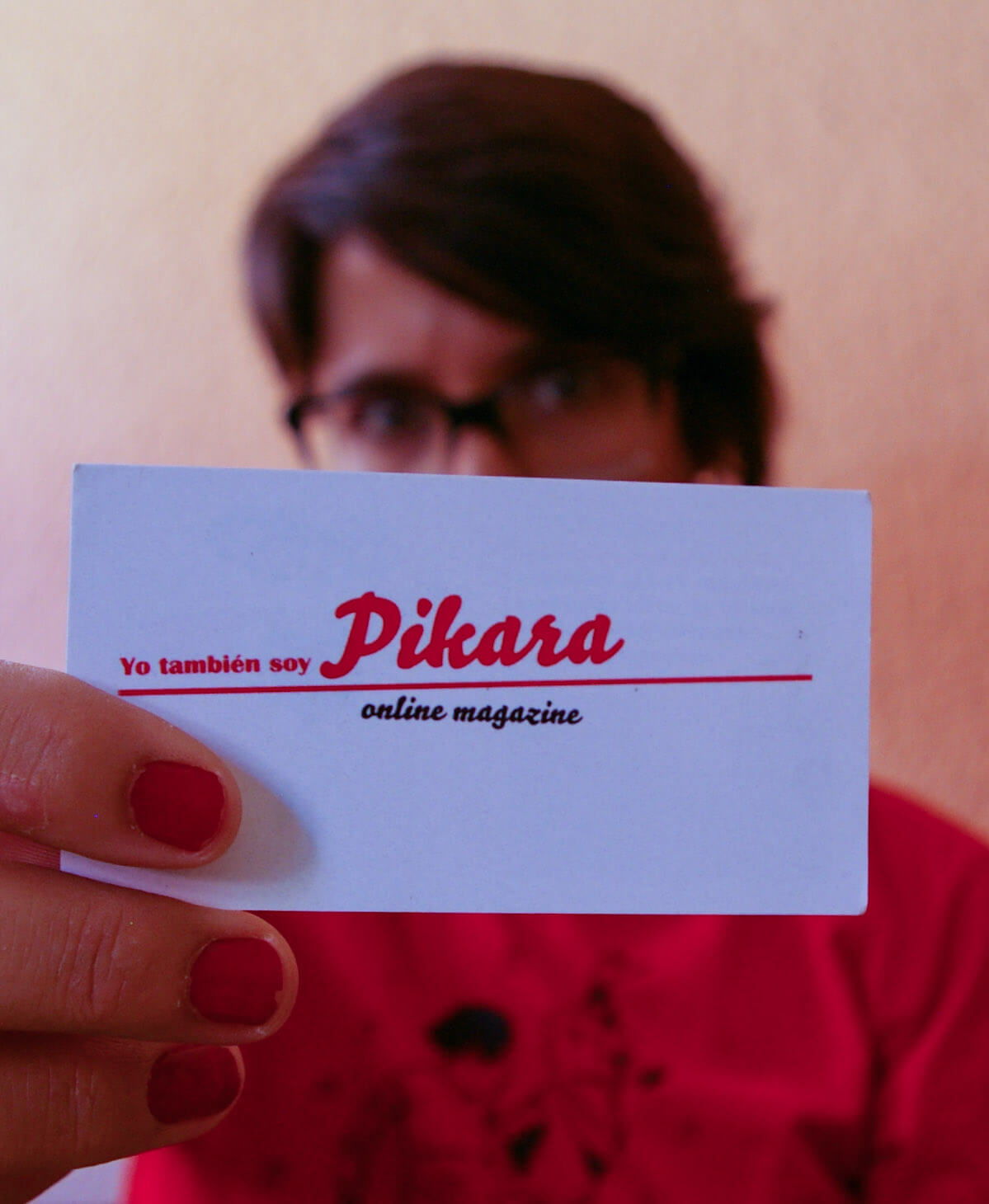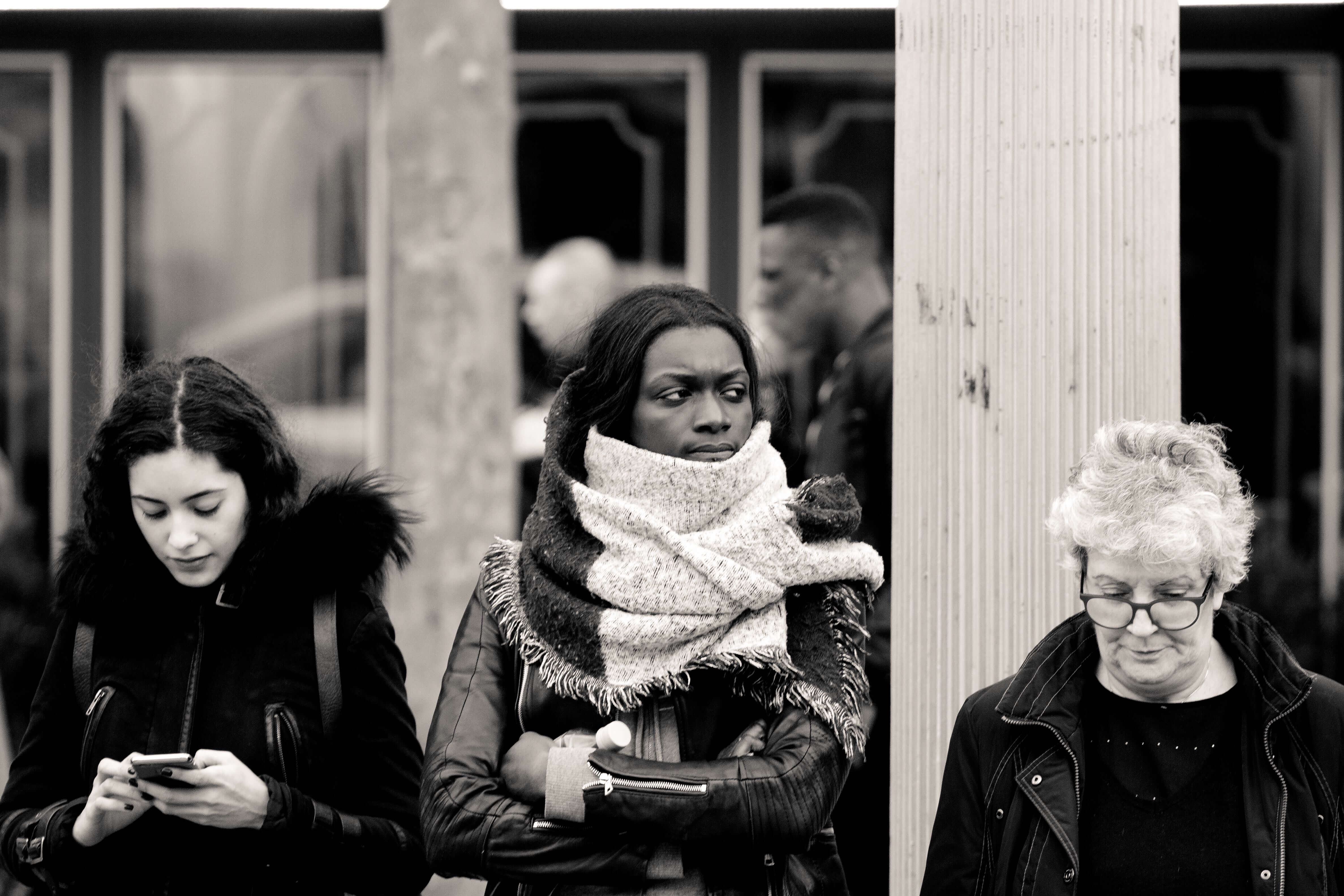At a time before feminism was a mainstream movement, before 8 March was reclaimed as a global project of emancipation, four journalists from the Basque Country decided to launch a project that would influence the way gendered discourse is narrated in the Spanish media. Since 2010 Pikara Magazine has shown that in order to create pluralistic and high quality journalism, you have to highlight issues that the mainstream media is excluding in their content and perspectives: the demands of women, LGTBI + issues, the views of oppressed minorities, intersectional perspectives on the way we do activism and live our lives. With few resources but considerable experience and dedication, the Pikara team has pioneered a new kind of journalism in Spain, publishing gender related content that deviates from the conventional patriarchal vision of media.
How has the magazine’s content and audience evolved over this almost ten year period?
Pikara was born as a small, unpretentious project, launched by four Basque journalists. From the very beginning, the objective was twofold: to be a media platform of reference for feminists, and to attract a broad audience with an accessible and appealing tone and perspective. The first objective was easier, in fact we immediately received the warmth of the feminists. Over time, some content became viral and we began to notice that many people were telling us that Pikara had become a gateway to feminism for many. Through collaborations with other media (eldiario.es, El Salto, Altaïr, La Directa…), and the fact that more generalist media interview or cite us as an expert sources, as well as conferences, talks, presentations in cities… all this has allowed us to reach more people. At first, most of the traffic was coming from the Basque Country, and now, one third of the visits in our website come from outside Spain.
Regarding our content, it has always been very broad. We consider ourselves a generalist media, because we believe that feminism is not a topic but a perspective. We have always covered all sort of issues (economy, sports, food, sovereignty, health, sexuality, historical memory, social movements, migrations and borders…) but with always with a gender perspective. More than the content I think that what has changed most in the past years has been the internal functioning of the magazine. For the first six years, Pikara was nourished by content sent by freelance collaborators and journalists, in a spontaneous and almost chaotic way. Now that we are a media platform with a larger structure (a physical copy, three journalists coordinating the project, administrative staff, interns…), we can better plan the materials and make clearer and stronger editorial decisions. One example is our transmedia journalism lab, where we have published special coverage on sexual and gender diversity; a wonderful monograph about artistic performance, and a monograph on defenders of human rights in Mesoamerica in which we are now focusing.

The organization of the global marches for 8 March as well as the media coverage is demonstrating the ability of feminism to mobilize people beyond national borders. Do you think that today there is something like a common goal or priority within feminism globally or do you think there are regional particularities that should be highlighted?
Both things happen, and the potential of these global calls is that they show this ambivalence. On the one hand, we are all in the same boat (rebelling against male violence, against a predatory capitalism that exploits and impoverishes, defending the right to decide on our bodies), but at the same time it allows us to adapt messages and actions to each political context. I think we are facing a global movement, at least in the West, of neoliberal and conservative rearmament. Think of Brazil, Argentina, the United States, the climate of exaltation of patriotism and the curtailment of liberties in Spain… At the same time, we participate in a feminist movement that is increasingly visible and interconnected, as demonstrations such as La Marcha de las Putas, #NiUnaMenos and #Metoo are proving.

Now that feminism has managed to break into mainstream media and social discourse, probably more than ever, it is important to look with courage at the reality of racial and gender prejudice, and try to understand how the two can be combined, further increasing their damage. Pikara is an example of how to give visibility to this reality in the media. Why do you think that intersectionality is a way to help promote this kind of change?
If our perspective is not intersectional, we will be dealing only with the concerns and inequalities that affect white, heterosexual, cisgender, middle class, urban and non-disabled women. In the last decade, the feminist movement in Spain has been interpolated by groups that pointed to these hegemonies and exclusions. If in 2009, at the Feminist State Conferences of Granada, transfeminism was claimed as a movement led by trans people, ‘bolleras’, migrants or sex workers, in the last two years collective groups of racialized feminists have emerged with strength that are telling us that White feminism does not represent them and it is not enough that in our posters we include a black woman. A milestone in this sense has been the first congress of Roma feminism, organized by Gypsy Feminists for Diversity.
At Pikara we have always defined ourselves as anti-racists and we have always been committed to understanding how systems of oppression interact, but it is important not to be complacent, to recognize biases and correct them. Our team has been, for long periods, ‘very white’. Now we have among our regular collaborators a gypsy activist and a black activist, Silvia Agüero Fernández and Lucía Mbomío, but it is also a matter of checking if our content and approaches are being inclusive. We are taking steps to improve accessibility, so that women with functional diversity can read Pikara and, moreover, include them as producers of content. We have passed from talking about “giving voice” to women “who experience multiple discriminations” to working so that Pikara is an inclusive and accessible media.

What would you say to women who decide not to support the strikes on March 8?
I would like to have a conversation with them. I would ask them why they do not feel included or why they do not find it important or appealing. And I would reflect on their answers. I would tell them why I do participate in these mobilizations. Maybe they feel that they are feminist in other ways, equally valid and valuable. I would not talk to them from a position of moral superiority.
One of the strongest topics that still divides and mobilizes women in feminist activism, not only now, but throughout history, has been prostitution in relation to sex workers. The dichotomy on how to protect their rights and freedoms, for example, in being able to follow a strike. What is your position in this debate?
Pikara has always been open as a space for discussion between feminists with different ideological positions. The editors of the magazine itself have different positions on that debate, through not necessarily closed ones. We like to doubt, try not to feed those factional positions, but to activate listening, mutual recognition and nuance. Nonetheless, I think we all agree that a specific ideological position cannot lead to denying the rights of some women to follow a feminist mobilization (I am thinking of those feminists who, considering that prostitution is not a job but a form of sexist violence, put in doubt that sex workers can participate in a strike).
In Pikara you have decided to deactivate reader comments in your articles. On Political Critique we have not activated this option either, and in principle it is not our immediate priority to find spaces for discussion with our readers, even though we are aware that the boundaries between producers and consumers in journalism is increasingly diluted and the dialogue and feedback is essential when you work or interact in online media spaces. What do you think is a good media platform or social network to promote feminist dialogues? Do you know Freeda for example? Do you have an opinion about the model of feminism and journalism that they are developing?
It was hard to take this decision, but we could not allow that hate speech would prevail on Pikara too. Moderating comments was a complex task and it wore us down a lot. Actually, comments in posts themselves are no longer an appealing space. Debate has moved to social networks. In our case, on our Facebook page there is a lot of dialogue, more constructive than what was there under the articles. In any case, we accompanied the decision to close the comments with the initiative to create the Pikara Feminist Debate Forum. It is a beautiful space, where people share personal experiences, reinforce arguments, share recommendations on feminist culture, etc. We did not know Freeda! What a beautiful site. Thank you so much for sharing it with us. The truth is that we know Latin American feminist communication spaces more than those in Europe, both because of language and because of our own life experiences.
Let’s take a journey to the future: in ten years, where would you like Pikara to be? What do you imagine could be demands for the demonstrations of the 8 March 2028?
Lately we have been dreaming about creating a large container of feminist projects: a building in which we could live with our city’s feminist bookshop (Louis Michel Liburuak, they still do not know anything, hahaha), and another feminist communication project called Faktoria Lila, opening a bar… having more resources to be a newsroom with more capacity to cover topics, both local and international. Being able to prove that, although fortunately feminism has entered the mass media, we are consolidating a journalistic culture on our own that is innovative, valuable and loving, which is also an initiative of social economy, and an alternative to journalistic business groups.
This capitalist and heteropatriarchal system is so predatory, so incompatible with life, that we hope that in ten years it has already been overcome and more fair and liveable models will have been established. The dream would be that in 2028 feminists go out to celebrate that we have promoted a change of system, that we have left behind the times in which the white man was the center of everything where he subjugated people, the different cultures and territories to consolidate his power.
*Lead image: Amigas de Píkara. Credits: Gaelx. Some rights reserved
![Political Critique [DISCONTINUED]](http://politicalcritique.org/wp-content/uploads/2015/09/Political-Critique-LOGO.png)
![Political Critique [DISCONTINUED]](http://politicalcritique.org/wp-content/uploads/2015/09/Political-Critique-LOGO-2.png)